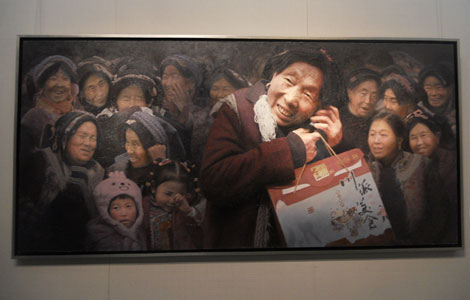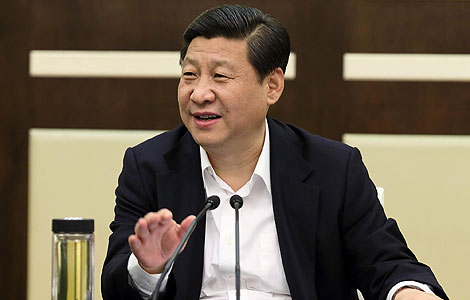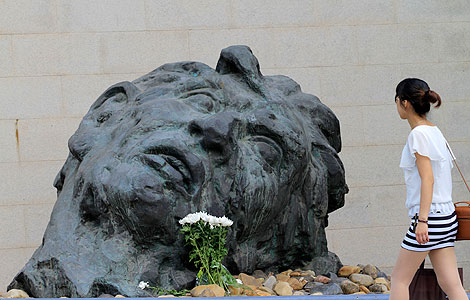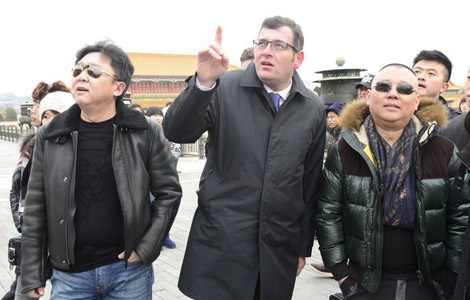
China will continue to improve the work and living environment for foreign experts and to hear more from them, a senior official said on Monday.
"We'll make greater efforts to introduce foreign talent and intelligence, perfect the legal system and provide a more favorable environment for foreign experts in China," said Gao Xiang, deputy director of the Department of International Cooperation of the State Administration of Foreign Experts Affairs.
![Pili Mwinyi Khamis, a Tanzanian anchorwoman with China Radio International, chats with Edwin Maher, a China Central Television news anchor from New Zealand, at a seminar in Beijing on Monday. [Photo BY WANG JING / CHINA DAILY] Advice sought from foreign experts](../../images/attachement/jpg/site1/20121211/0023ae9885da1230a4fe02.jpg) |
|
Pili Mwinyi Khamis, a Tanzanian anchorwoman with China Radio International, chats with Edwin Maher, a China Central Television news anchor from New Zealand, at a seminar in Beijing on Monday. [Photo BY WANG JING / CHINA DAILY] |
The administration is in charge of drafting laws and guidelines, and establishing a service system for foreign experts.
Gao said the administration will also collect more opinions from foreign experts by regularly hold symposiums with them.
He made the remarks at a seminar held by the administration on Monday in Beijing. Fifteen foreign experts from nine countries attended the event. Two of the foreign experts took part in a meeting last week with the new Communist Party of China leader Xi Jinping.
On Dec 5, Xi talked to 20 foreign experts working in China, during which he stressed China's commitment to peaceful development and its opening-up policy. It was Xi's first meeting with foreigners since he was elected general secretary of the CPC Central Committee last month.
At the Dec 5 meeting, Xi also emphasized foreign experts' historic contribution to China's development and said the Chinese people should absorb more outstanding achievements of other countries' civilizations.
"Xi's speech is very important. All countries are paying close attention to China on the world economic stage," said Tokuchi Tatsuhito, a Japanese financier who attended Xi's meeting last week and Monday's symposium.
He said China has seen annual double-digit economic growth in the past decade. Even if the growth rate falls to 7 percent, there will be considerable change in China in the coming decade, which concerns other countries.
Tatsuhito also suggested on Monday that China learn both technology and scientific management from foreign experts.
"Technology solves the concrete problems. Overseas research institutions have numerous advanced technologies, which need to be learned," he said.
"Meanwhile, a country's economic development cannot rely only on new technologies. Economic development is a systematic process that includes the people in the society and their values. In that regard, I believe that China still should look at models from other parts of the world."
Wang Haiyang, a Chinese-American expert on agricultural biotechnology, said that when China gets foreign management experience, local conditions should also be taken into consideration.
"If we copy foreign management experience, we will encounter some problems with Chinese features," he said.
One example Wang cited in China is that he can dismiss his laboratory employees in the United States when a research project ends, but in China, he is constrained by the Labor Contract Law.
"The law surely is meaningful for Chinese society, so we should find a different way, a way that enables foreign technology and management methods to take root on Chinese soil within China's law and policies."







